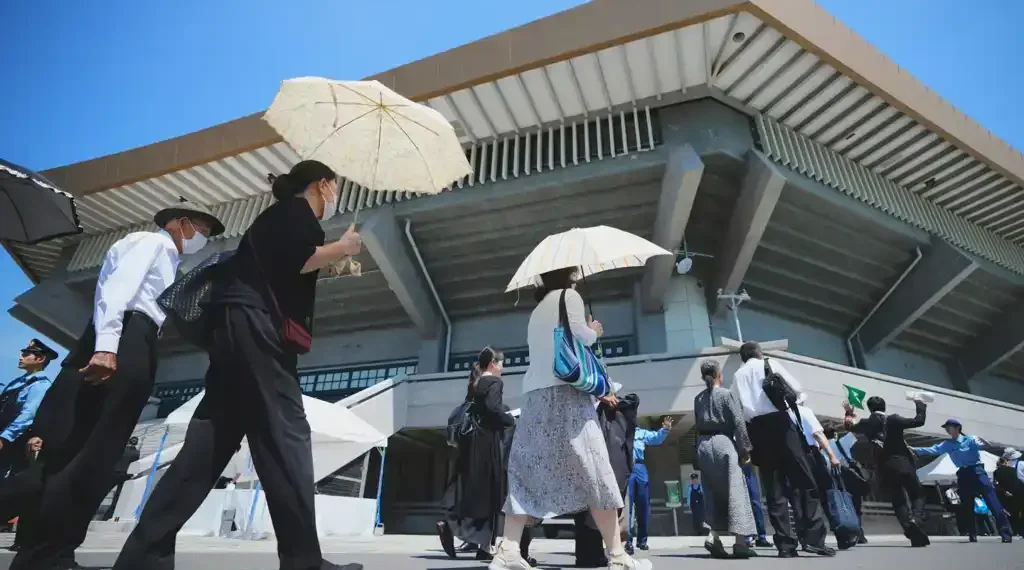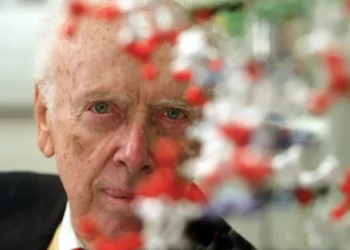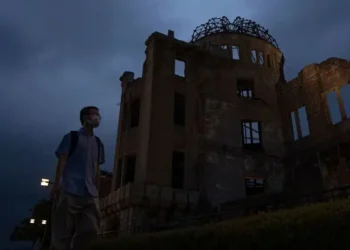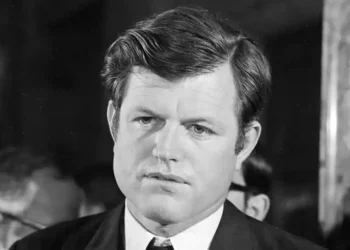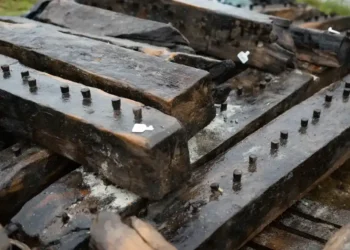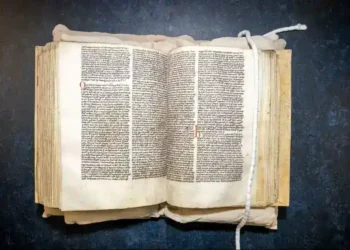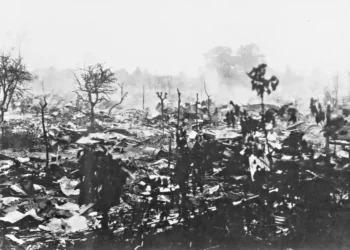Japan Commemorates 80 Years Since WWII Surrender, Calls for Preserving Memory of War
Published Time: 08-15-2025, 14:30
Japan marked the 80th anniversary of its surrender in World War II on Friday, honoring more than three million war dead in solemn ceremonies in Tokyo. The day carried added weight as historians and officials voiced concern over the fading memories of the conflict and the lessons from an era defined by militarism.
Prime Minister Restores ‘Remorse’ to Commemorative Address
Prime Minister Shigeru Ishiba delivered a national address that reintroduced the word “remorse” — absent from a Japanese leader’s August 15 speech since 2013, when former Prime Minister Shinzo Abe omitted it.
“We will never repeat the tragedy of war. We will never go the wrong way,” Ishiba said. “Once again, we must deeply keep to our hearts the remorse and lesson from that war.”
Ishiba described the war as “a mistake” and pledged to ensure its lessons are passed on to Japan’s postwar-born generations. According to government statistics, a vast majority of Japanese citizens today have no direct memory of the conflict.
“The memory of the tragedy of war and our determination for peace must be carried forward through generations,” Ishiba emphasized, committing Japan to “actions toward achieving lasting peace.”
National Ceremony Honors War Dead
The main remembrance ceremony took place at Tokyo’s Nippon Budokan hall, with approximately 4,500 attendees, including government officials, bereaved families, and descendants from across the nation. At exactly noon — the time Emperor Hirohito’s surrender address was broadcast on August 15, 1945 — participants observed a moment of silence.
The solemn pause echoed across the country, marking the official end of the Pacific War and symbolizing Japan’s commitment to peace in the decades since.
Controversy Over Yasukuni Shrine Visits
Just a short distance from the official ceremony, Yasukuni Shrine — which enshrines about 2.5 million war dead, including 14 convicted Class-A war criminals — drew visits from dozens of right-wing politicians and supporters.
The shrine remains a flashpoint for Japan’s relations with China and the Koreas, where it is seen as a symbol of wartime aggression. Neighboring nations have long criticized visits by Japanese leaders as a sign of insufficient remorse for wartime atrocities.
Prime Minister Ishiba refrained from visiting the shrine, instead sending a religious offering as a private gesture. However, Shinjiro Koizumi, the agriculture minister and a prominent contender to succeed Ishiba, prayed at the shrine. Koizumi, son of former Prime Minister Junichiro Koizumi — whose 2001 visit sparked anger in China — has maintained a consistent presence at the site.
Other high-profile visitors included former economic security ministers Sanae Takaichi and Takayuki Kobayashi, as well as ruling Liberal Democratic Party executive Koichi Hagiuda.
Debates Over Wartime Memory and Historical Accountability
Japan’s approach to remembering the war has faced scrutiny for years, particularly during the Abe administration (2012–2020), when official statements stopped including apologies to Asian victims.
Historians note that this shift coincided with a rise in revisionist narratives, including lawmakers questioning or denying Japan’s responsibility for events such as the Nanjing Massacre and civilian casualties during the Battle of Okinawa.
Demographic changes are intensifying the challenge. With the wartime generation rapidly aging, fewer survivors remain to share firsthand accounts. Educators and historians are calling for renewed efforts to preserve personal testimonies and historical evidence.
Media and Academic Reflections on Japan’s Peace Stance
In an editorial marking the anniversary, the Mainichi Shimbun observed that Japan’s pacifism has often been defined by avoiding involvement in international conflicts rather than actively working toward peace. The newspaper urged Tokyo to deepen cooperation with Asian neighbors as equal partners in pursuit of a “world without war.”
“It’s time to show a vision toward ‘a world without war’ based on the lesson from its own history,” the editorial said.
International scholars have echoed this sentiment, noting that preserving wartime memory is not only about honoring the dead but also about preventing the rise of militarism in the future.
A Global and Generational Responsibility
For many in Japan, August 15 serves as both a day of mourning and a reminder of the country’s postwar transformation into a democratic, pacifist state. The government continues to emphasize diplomacy, economic development, and humanitarian cooperation as central pillars of its foreign policy.
As Japan enters its ninth postwar decade, officials and citizens alike face the challenge of ensuring that the lessons of history remain relevant to generations with no lived connection to the conflict. Whether through education, public dialogue, or international engagement, the nation’s commitment to peace will be tested in the years ahead.
This article was rewritten by JournosNews.com based on verified reporting from trusted sources. The content has been independently reviewed, fact-checked, and edited for accuracy, neutrality, tone, and global readability in accordance with Google News and AdSense standards.
All opinions, quotes, or statements from contributors, experts, or sourced organizations do not necessarily reflect the views of JournosNews.com. JournosNews.com maintains full editorial independence from any external funders, sponsors, or organizations.
Stay informed with JournosNews.com — your trusted source for verified global reporting and in-depth analysis. Follow us on Google News, BlueSky, and X for real-time updates.
